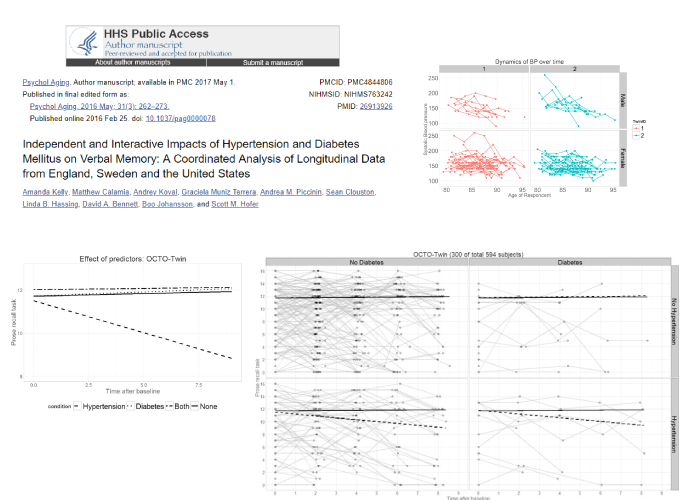Independent and Interactive Impacts of Hypertension and Diabetes Mellitus on Verbal Memory
A Coordinated Analysis of Longitudinal Data from England, Sweden, and the United States
Abstract
The importance of preventing and controlling hypertension (HTN) and diabetes mellitus (DM) to mitigate risks to physical health has long been understood by health care professionals. More recently, a growing body of evidence implicates HTN and DM in age-related cognitive decline and risk for dementia, though consensus has yet to be reached on whether older adults living with comorbid HTN and DM are at heightened risk for cognitive impairment. The present study sought to contribute to this topic through a coordinated analysis of 3 longitudinal studies of aging from England, Sweden, and the United States (total N = 12,513). Identical multilevel linear growth models were fit to each to estimate the impact of baseline disease status on initial level and change in verbal declarative memory performance. Overall, few associations between HTN, DM, and cognition were observed. Rate of decline was steeper for Swedish participants with independent HTN but attenuated for their American counterparts. Americans with comorbid HTN and DM showed attenuated decline. Treatment with medication was substantially less prevalent in the earlier-born and lower-educated Swedish sample, which may help to explain our pattern of results. In addition, those living with multiple conditions may be more likely to receive treatment, mitigating cognitive decline. Our results present a nuanced view of the interactions between HTN, DM, and cognition, and lead us to recommend consideration of treatment status or proxies such as birth cohort and education, in combination with age at assessment and specific measure used to interpret research in this area.



